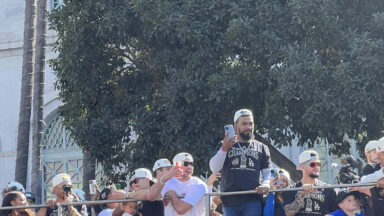TheGrio’s Jared Alexander caught up with the editor of “Bayard Rustin: A Legacy of Protest and Politics,” Michael G. Long, and Rustin’s surviving partner Walter Naegle days before the 60th anniversary of the March on Washington.
Sixty years ago this week, 250,000 people came together for the historic March on Washington, best remembered, of course, for Dr. Martin Luther King Jr.’s famous “I Have a Dream” speech. While various civil rights leaders including King have remained in the spotlight through various books, films, records, and projects dedicated to their legacies, one trailblazer is on the precipice of finally getting his due: Bayard Rustin.
The architect of the groundbreaking march, Rustin was a Black gay man who dove head first into the fight for civil rights, helping to promote ideals like criminal justice reform, war resistance, livable minimum wages and more. In Michael G. Long’s new book, a variety of contributors come together to examine Rustin from all angles: his upbringing with his grandparents in West Chester, Pennsylvania, his ventures as a well-traveled pacifist, his work alongside fellow titans of the civil rights movement and his life as a gay man many years before the fight for LGBTQ+ rights saw the progress we enjoy now.

Long, who has written frequently about civil rights, nonviolent protests, gender and sexuality, as well as edited works including “42 Today: Jackie Robinson and His Legacy,” and “Unstoppable: How Bayard Rustin Organized the 1963 March on Washington,” sees this time as a special moment for the late civil rights figure.
“I think he is really emerging on his own right now which is really good to see,” Long explained. “For many years, those who knew Rustin sort of saw him as a victim of gay oppression. He was somebody who was definitely kept in the shadows by civil rights leaders including Dr. King. Journalists and historians followed suit and they didn’t pay attention to him very much.”
Source: Bayard Rustin’s life, legacy and impact explored in new book



Recent Comments